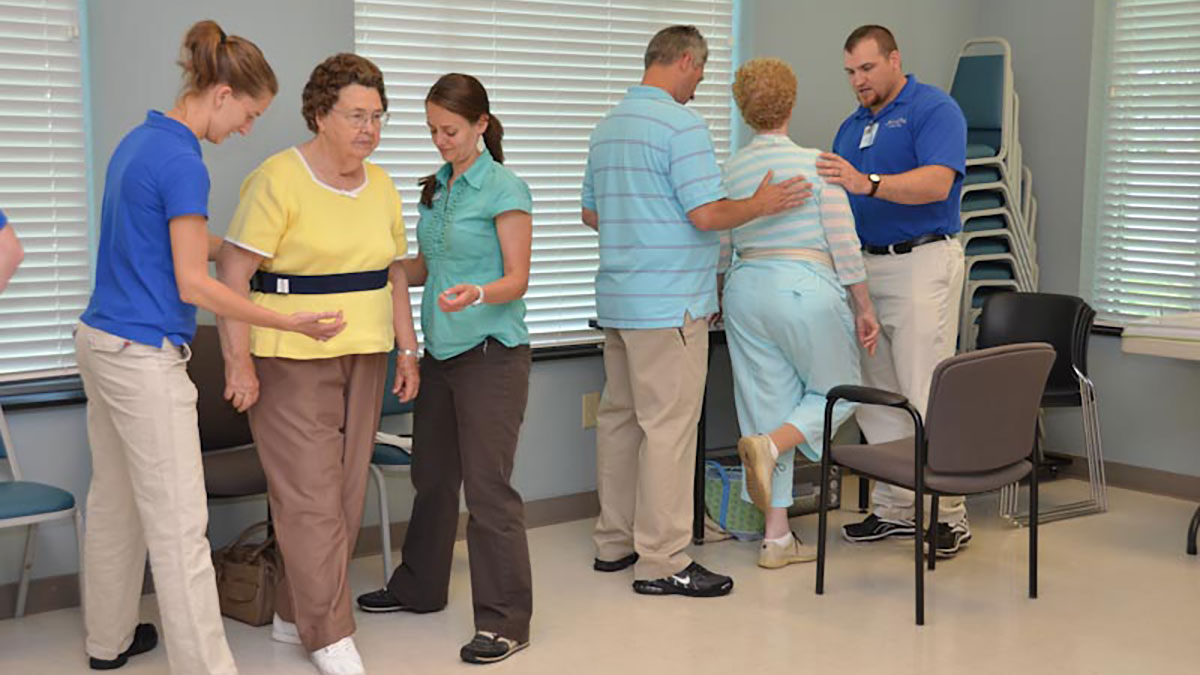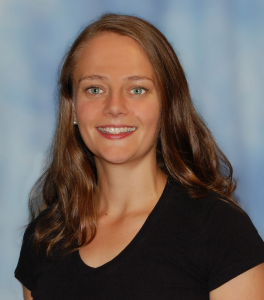Taking research to communities
With a degree in human movement science from the UNC School of Medicine's Department of Allied Health Sciences, Gabrielle Scronce hopes to bring top-of-the-line care to all communities.

When Gabrielle Scronce was growing up in Vale, North Carolina, the closest doctor’s office was 30 minutes away — just far enough that many residents in the rural town were unable to access proper medical care.
Elderly residents — more prone to falling and suffering trauma — tend to be the most significant victims of health care shortages in rural communities, and Vale was no different.
“They often have to move into different towns where they have skilled nursing for more consistent care,” said Scronce, a two-time Carolina graduate with a doctorate in physical therapy and a Royster Fellow in the UNC Graduate School.
 Scronce wants to make this challenge a thing of the past. As she receives her third degree from UNC-Chapel Hill — a doctorate in human movement science — Scronce is prepared to do just that.
Scronce wants to make this challenge a thing of the past. As she receives her third degree from UNC-Chapel Hill — a doctorate in human movement science — Scronce is prepared to do just that.
“A lot of folks have built a foundation of knowledge in the laboratory, and I want to be part of this next movement that takes that information out and into the real world,” she said.
A mission to serve
When Scronce first arrived in Chapel Hill as an undergraduate in 2002 to study political science and women’s studies, she planned on becoming a social worker.
Her parents had helped her cultivate a passion for giving back and serving her community by encouraging Scronce and her three siblings to volunteer at nursing homes and with church programs.
Scronce turned that passion into a profession after she graduated in 2006. She took a job at the North Carolina Women’s Hospital, where she worked to provide expecting mothers the resources they needed.
That experience, combined with witnessing both of her grandmothers break their hips from falls, led Scronce to consider a career in physical therapy.
“It turns out that there’s quite a bit of the same philosophy in physical therapy [as in social work] — it’s all helping folks, figuring out what their needs are and helping them meet their goals,” she said.
As a UNC Health Care employee, she took advantage of the opportunity to take a free class each semester at Carolina. Semester by semester, Scronce took the prerequisites for physical therapy school, and ultimately enrolled in the School of Medicine’s doctor of physical therapy program in 2011.
As a student, she participated in service-learning trips, serving as the physical therapy coordinator with the University’s Student Health Action Coalition, which provides free health care in the Triangle, and volunteering to work with patients in their home.
“It gave me the chance to go into people’s homes and see what they needed to help them out in a very simple way that was well within what I was able to do as a student,” she said.
But it also reminded her of the gaps in care that exist between areas like the Triangle and rural North Carolina.
Translating research
While people near top-tier research and medical facilities have access to health care services and skilled volunteers, other communities have neither the facilities nor volunteers to assist, Scronce said.
To bring that support to a rural part of North Carolina, Scronce began volunteering with the Community Health and Mobility Partnership in McDowell County. The program, established by her faculty adviser Vicki Mercer, uses an exercise regimen to improve the lives of older adults by decreasing their risks of falls.
“The exercises that we do are fairly simple, and they’re exercises that they can do on their own at home,” Scronce said. “It takes less than 30 minutes a day, but it really targets the muscles that get weak and that may lead to having a greater risk of falling if you’re not strengthening them.”
The work inspired her dissertation, which investigated the real-world implications of programs developed through laboratory research. By translating research conducted in labs and working directly with patients, Scronce hopes to bring top-of-the-line care to all communities.
“It was amazing to see not only what we could do as physical therapists, but it also changed my career path,” she said. “This is the kind of research I want to do. This is the kind of program that I see can really be a benefit.”
She hopes to continue similar community-based research after graduation, expanding her work to assess the needs of older adults from disadvantaged backgrounds.
But this week is a time for Scronce to reflect on her achievement of earning a Ph.D. — something only 2% of Americans hold.
“It’s surreal,” she said. “Even when I started my PT program, it was something that seemed like it was unachievable. I’m only here because I’ve had incredible privilege in my life, and I’ve had incredible support and mentors.”
Learn more about Carolina’s Department of Allied Health Sciences




